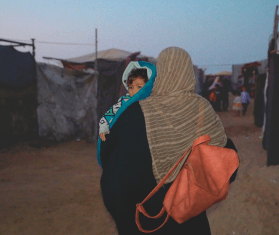Dear Friends,
In January 2010, a massive earthquake hit Haiti and necessitated the largest emergency response in MSF’s history. In this issue of Alert, we return to Haiti to look at how that response has evolved, and continues to evolve, in Port-au-Prince. In the years since the earthquake we've spent a lot of time discussing MSF's activities in Haiti, and with good reason—high-quality, free-of-charge health services are still sorely lacking, and the nation remains susceptible to large-scale cholera outbreaks. MSF has been and remains the largest medical organization responding to these unmet needs. Teams are providing a number of essential services today, such as the burn unit at MSF’s Drouillard hospital, which you will learn more about in these pages.
But we shouldn't forget the other crises, in other countries, that would have been among MSF's largest-ever emergency responses before January 2010, and remain significant medical emergencies today. Being able to respond to these emergencies is the main reason MSF exists, and we have in this issue a discussion with the director of MSF's emergency desk, or "E-desk," in Paris, Dr. Mego Terzian, about how MSF prepares for and responds to emergencies as they happen.
In the Haiti story, we touch on the transition from the emergency phase into the post-emergency phase, when gains made during the emergency phase must be protected and the patients tended to must be further nursed back to health. In Haiti, hospitals like Drouillard illustrate MSF’s conviction that ongoing needs necessitate ongoing involvement, and that where few options for care exist, we must provide that care and, at times, the facilities in which it occurs.
With HIV, MSF—and particularly some determined, visionary individuals within the organization—started treating people living with HIV/AIDS before it was deemed practical, affordable, or even useful. That was more than a decade ago, and MSF has now treated hundreds of thousands of people and helped establish a baseline for treatment that is widely accepted (even if not widely enough) around the world. In this issue’s field journal, MSF HIV/AIDS Policy Expert Sharonann Lynch discusses traveling to Mozambique to study community antiretroviral groups and the members who work together to make sure they all get the treatment they need. It’s an incredible, inspiring initiative that was beyond anyone’s imagination back in 2001—when HIV/AIDS was essentially a death sentence in so many places, and thus very much an emergency.
The needs don’t end when the emergency is declared over. In places like Haiti, they are in fact amplified because other actors leave. MSF will continue to respond to an emergency as a holistic, kinetic entity, and, with generous support from people like you and the continued dedication of our field workers, stand ready to understand and fulfill its role, delivering assistance to the people who need it most.

Sincerely,
Sophie Delaunay
Executive Director, MSF-USA




